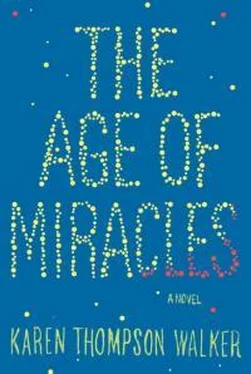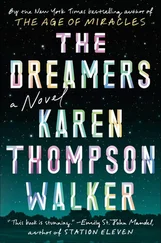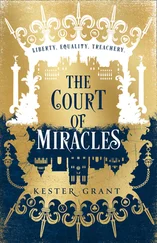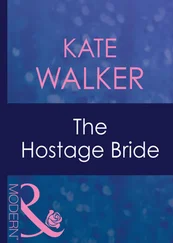“Don’t go,” said my mother. “Not tonight.”
I remember hoping she could convince him not to leave, but he continued to tie his shoes. He liked the loops in his bows to be exactly the same size.
“They’ll understand if you don’t show up,” said my mother. “It’s chaos out there, with the traffic and the panic and everything.”
Some of my father’s patients had spent months in the hospital, trying to hold their babies in their wombs until the babies were strong enough to survive the world.
“Come on, Helen,” he said. “You know I can’t stay.”
He stood up and patted his front pocket. I heard the muted jingle of keys.
“We need you here,” my mother said. She rested her head sideways against my father’s chest—he was over a foot taller. “We really don’t want you to go, right, Julia?”
I wanted him to stay, too, but I’d grown expert at diplomacy as only an only child can.
“I wish he didn’t have to go,” I said carefully. “But I guess if he has to go.”
My mother turned away from me and said to him more softly, “Please. We don’t even know what’s happening.”
“Come on, Helen,” he said, smoothing her hair. “Don’t be so dramatic. Nothing’s going to happen between now and tomorrow morning. I’m betting this whole thing will blow over.”
“How?” she said. “How could it?”
He kissed her on the cheek and waved to me from the entry hall. Then he stepped outside and shut the door. Soon we heard his car starting up in the driveway.
My mother flopped down next to me on the couch. “At least you’re not abandoning me,” she said. “We’ll have to take care of each other.”
I felt like escaping to Hanna’s house right then, but I knew it would upset my mother if I left.
From outside, the voices of children floated into the living room. Through the blinds, I could see the Kaplan family walking down the sidewalk. Saturday was their Sabbath day, which meant they didn’t drive all day. There were six of them now: Mr. and Mrs. Kaplan, Jacob, Beth, Aaron, and the baby in the stroller. The kids went to the Jewish day school up north, and they dressed mostly in black, in a way that reminded me of characters in old movies, a flutter of long skirts and black pants. Beth Kaplan was my age, but I didn’t know her well. She kept to herself. She wore a long-sleeve shirt and a long rectangular black skirt with stylish red patent-leather shoes. I figured that footwear was her one place to shine. As the Kaplans glided past our house, the littlest one picking dandelions from the edge of our lawn, I realized that they might not yet know about the slowing.
I found out much later from Jacob that I was right: The Kaplans did not discover until sundown—when their Sabbath was over and their religion once again allowed them to flip light switches and watch TV—that this world was any different from the one they’d been born into. If you didn’t hear the news, the landscape looked unchanged. This was not true later, of course, but for now, on this first day, the earth still seemed itself.
We lived on a cul-de-sac in a neighborhood of tract houses built in the 1970s on quarter-acre lots with stucco exteriors and asbestos in the ceilings and the walls. An olive tree twisted up from every front yard unless it had been torn out and replaced with some trendier, thirstier tree. The yards on our street were well kept but not obsessively so. Daisies and dandelions were scattered amid the thinning grass. Pink bougainvillea bushes clung to the sides of almost all the houses, shaking and shimmering in the wind.
In satellite maps from that era, our row of cul-de-sacs looks neat and parallel, each with a fat bulb at the end, like ten thermometers hanging from a string. Ours was one in a web of modest streets carved into the less expensive side of a coastal California hill whose pricier slope faced the ocean.
Our mornings were bright back then. Our kitchens faced east. Sun streamed through windows as coffeepots gurgled and showers ran, as I brushed my teeth or chose an outfit for school. Our afternoons were shady and cool because each evening, the sun dropped behind the nicer houses at the top of the hill a full hour before it slipped into the ocean on the other side. On this day, we waited for sunset with new suspense.
“I think it moved a little,” I said, squinting. “I mean, it’s definitely going down.”
All along the street, garage doors eased open on electric tracks. Station wagons and SUVs emerged, loaded with kids and clothes and dogs. A few neighbors stood clustered, arms crossed, on their lawns. Everyone was watching the sky as if waiting for a fireworks show to begin.
“Don’t look directly at the sun,” said my mother, who was sitting beside me on the porch. “It’ll ruin your eyes.”
She was peeling open a package of double-A batteries she’d found in a drawer. Three flashlights lay on the cement beside her, a mini arsenal of light. The sun remained high in the sky, but she had grown obsessed already with the possibilities of an extra-long night.
In the distance at the end of the street, I spotted my old friend Gabby, sitting alone on her roof. I hadn’t seen her much since her parents had transferred her to a private school in the next town over from ours. As usual, she was dressed in all black. Her dyed black hair stood out against the sky.
“Why did she dye it like that?” said my mother.
“I don’t know,” I said. Not visible from this distance were the three tiers of earrings that hung from both of Gabby’s ears. “She just felt like it, I guess.”
A portable radio chattered and buzzed beside us. We were gaining more minutes with every hour. Already, they were arguing about the wheat point—I’ve never understood if this was a term that had been buried for decades in the glossaries of textbooks, or if it was coined on that day, a new answer to a new question: How long can major crops survive without the light of the sun?
My mother switched the flashlights on and off, one by one, testing their beams in the cup of her hand. She dumped the old batteries out of each barrel and replaced them with new ones, as if arranging ammunition in a set of guns.
“I don’t know why your father hasn’t called me back,” she said.
She’d brought the cordless phone out to the porch, where it sat silent beside her. She took quick soundless sips of her drink. I remember the sound of the ice clinking in the glass, the way the water dripped down the sides, leaving intersecting rings on the cement.
Not everyone panicked. Sylvia, my piano teacher, who lived across the street, went right on tending her garden as if nothing at all had happened. I watched her kneeling calmly in the dirt, a pair of shiny shears in one hand. Later, she took a slow walk around the block, her clogs tapping the sidewalk as she went, her red hair falling from a hasty braid.
“Hi, Julia,” she said when she reached our yard. She smiled at my mother but did not say her name. They were about the same age, but Sylvia still seemed girlish somehow, and my mother did not.
“You don’t seem very worried,” said my mother.
“Que será, será,” said Sylvia. Her words were one long sigh. “That’s what I always say. Whatever will be, will be.”
I liked Sylvia, but I knew my mother didn’t. Sylvia was cool and wispy and she smelled like lotion. Her limbs were lanky, like the branches of eucalyptus trees, and were often encircled in chunky turquoise jewelry, which she removed at the beginning of each of my piano lessons in order to commune more closely with the keys. She always played piano barefoot.
“Or maybe I’m just not thinking straight,” Sylvia said. “I’m in the middle of doing a cleanse.”
Читать дальше












